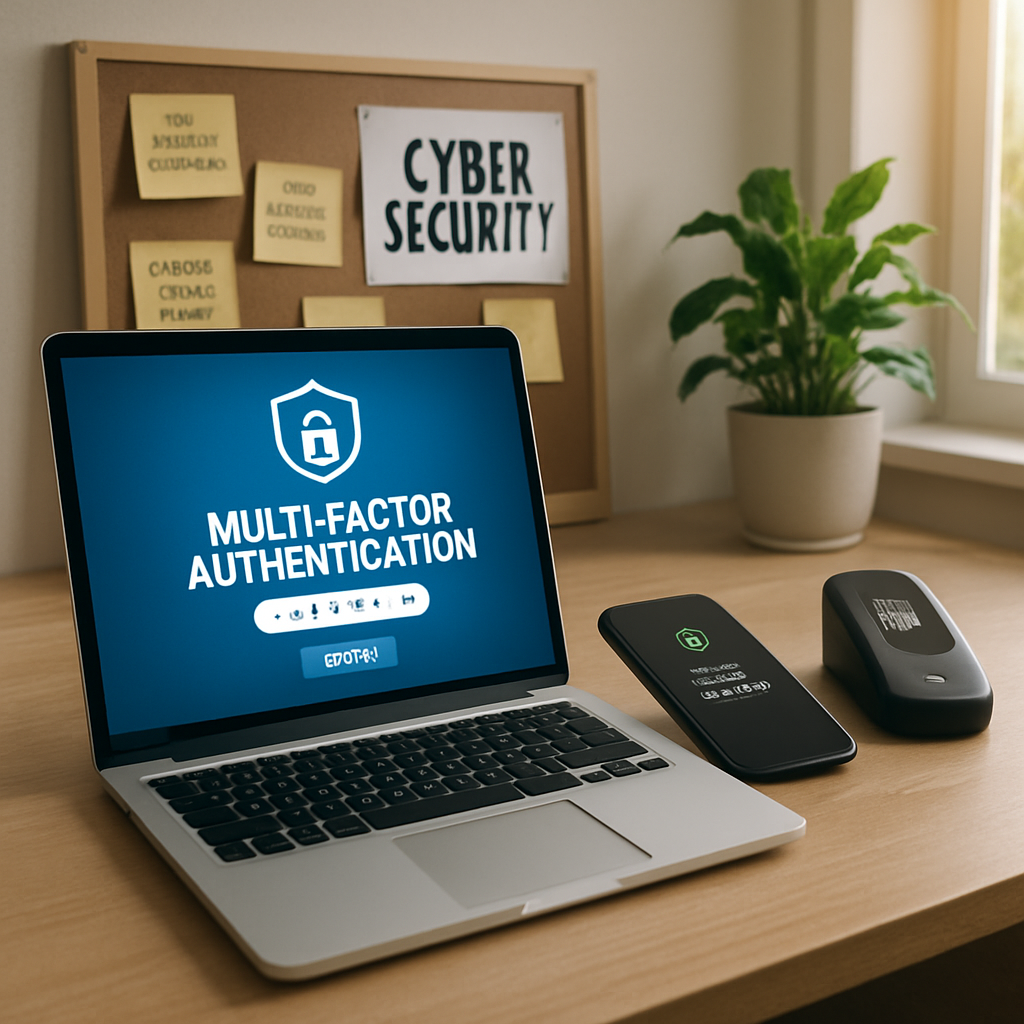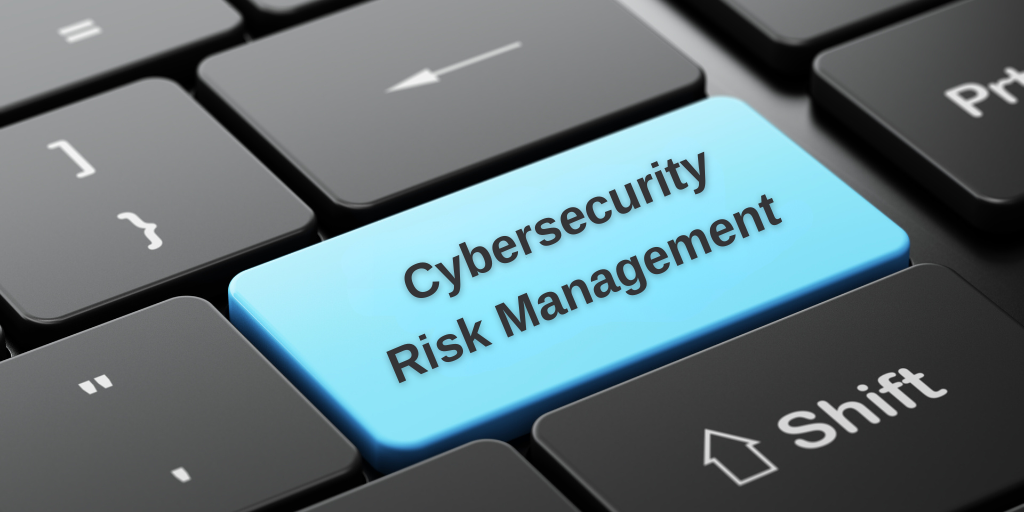Secure Messaging Practices for Small Businesses
Small businesses must prioritize secure messaging to protect sensitive information and maintain customer trust.
3 min read
.jpeg) Michael Markulec
:
Nov 18, 2025 11:40:22 AM
Michael Markulec
:
Nov 18, 2025 11:40:22 AM

Small businesses face growing cyber threats, making multi-factor authentication a critical defense to safeguard sensitive data and ensure business continuity.
The digital landscape is evolving rapidly, and small businesses are increasingly becoming prime targets for cybercriminals. While large enterprises often make headlines for major breaches, attackers recognize that small companies typically have fewer resources dedicated to cybersecurity, making them attractive targets. Ransomware, phishing, and credential theft are on the rise, with many small organizations facing operational disruption, financial loss, and reputational damage as a result.
As remote work expands and cloud adoption accelerates, the attack surface for small businesses becomes increasingly wider. Threat actors leverage automated tools to scan for vulnerabilities and exploit weak authentication processes. Without proper defenses, the risks of data breaches, regulatory penalties, and business continuity failures grow exponentially. Proactive security measures are crucial in countering these evolving threats.
Multi-factor authentication (MFA) is a security mechanism designed to strengthen user verification by requiring two or more independent types of credentials before granting access. These credentials are typically divided into three categories: something you know (such as a password or PIN), something you have (like a smartphone, security token, or hardware key), and something you are (biometric methods, including fingerprints or facial recognition). By enforcing the use of multiple authentication factors, MFA creates a layered defense, making it substantially more difficult for unauthorized individuals to penetrate business systems—even if one credential, like a password, is compromised through phishing or other means.
For small businesses, MFA serves as a critical line of defense against the most common forms of cyberattacks, including credential theft, account takeover, and targeted ransomware campaigns. By implementing MFA, organizations protect not only their core business systems but also sensitive assets, including customer data, financial transactions, proprietary information, and regulated records. This additional layer of security is particularly vital for businesses operating in industries with heightened data protection standards or compliance obligations.
Implementing MFA demonstrates a commitment to cybersecurity maturity and responsible data stewardship. It can help organizations satisfy industry regulations and frameworks—such as SOC 2, HIPAA, or CMMC—by providing documented proof of access controls and risk mitigation practices. Furthermore, the use of MFA signals to customers, partners, and regulators that the business prioritizes security and takes proactive steps to prevent breaches. This not only strengthens the organization’s reputation but also builds lasting trust with key stakeholders, providing a foundation for secure growth and ongoing business resilience.
Cyber attackers frequently target small businesses using a combination of sophisticated and opportunistic techniques. Phishing emails are a leading entry point, designed to deceive employees into clicking malicious links or divulging sensitive credentials under the guise of legitimate business communications. In parallel, attackers employ brute-force attacks on exposed login portals, systematically attempting countless username and password combinations—often leveraging automated scripts that can test thousands of possibilities in a matter of minutes. The widespread problem of weak, default, or reused passwords significantly amplifies these risks, as do common social engineering tactics that exploit human error to bypass technological safeguards.
Beyond credential theft, attackers increasingly seek to monetize access through ransomware, business email compromise, or fraudulent financial transactions. Once inside, threat actors can swiftly pivot to compromise email accounts, cloud storage solutions, and other critical cloud-based systems integral to daily operations. A lack of strong authentication controls provides an easy path, giving cybercriminals the foothold they need to inflict data breaches, disrupt business processes, or extract sensitive information for subsequent attacks.
Multi-factor authentication (MFA) directly addresses these vulnerabilities by requiring more than just a password to gain access. With MFA in place, the theft or guessing of user credentials alone is no longer sufficient; attackers must overcome an additional barrier, such as a code delivered to a trusted device or a biometric check, which significantly decreases the probability of successful account compromise. For small businesses, MFA serves as a powerful deterrent, helping to mitigate some of the most common and damaging attack vectors while supporting ongoing regulatory compliance and business resilience initiatives.
Introducing multi-factor authentication is a manageable and high-impact initiative for small businesses seeking to elevate their security posture. To maximize effectiveness, start by identifying and prioritizing critical accounts—such as email platforms, cloud-based business applications, financial portals, and any systems with administrator or remote access privileges—for the rollout of MFA. Harness the built-in MFA features provided by leading service vendors, such as Microsoft 365 and Google Workspace, as well as significant financial institutions. These tools are designed to streamline deployment, simplify user onboarding, and minimize disruptions to daily workflows.
Adopting user-friendly authentication methods—such as mobile authenticator apps, push notifications, or physical hardware tokens—greatly enhances employee adoption rates and minimizes support challenges. It is vital to accompany rollout with comprehensive instructions and dedicated training sessions, ensuring that all staff members understand not only how to register and use MFA, but also why it is essential to protect both company and customer information. In addition, establish policies mandating MFA for all privileged accounts, remote connections, and third-party integrations to extend security coverage across your technology ecosystem.
Ongoing maintenance is equally important. Regularly review access logs for anomalous or suspicious activity, routinely test recovery procedures, and update authentication policies as the business evolves or adopts new technologies. Collaborating with a cybersecurity consulting firm, such as Harbor Technology Group, provides access to specialized expertise that streamlines MFA implementation, supports alignment with compliance frameworks like SOC 2 or CMMC, and connects MFA to a broader, risk-based security strategy. With expert guidance, small businesses can ensure sustained protection, compliance, and peace of mind as digital operations expand.

Small businesses must prioritize secure messaging to protect sensitive information and maintain customer trust.
.png)
Discover how small and medium-sized businesses can fortify their digital defenses against the escalating wave of cyber threats.

In an age where digital threats loom around every virtual corner, cybersecurity is no longer just a concern for tech giants or governmental bodies....